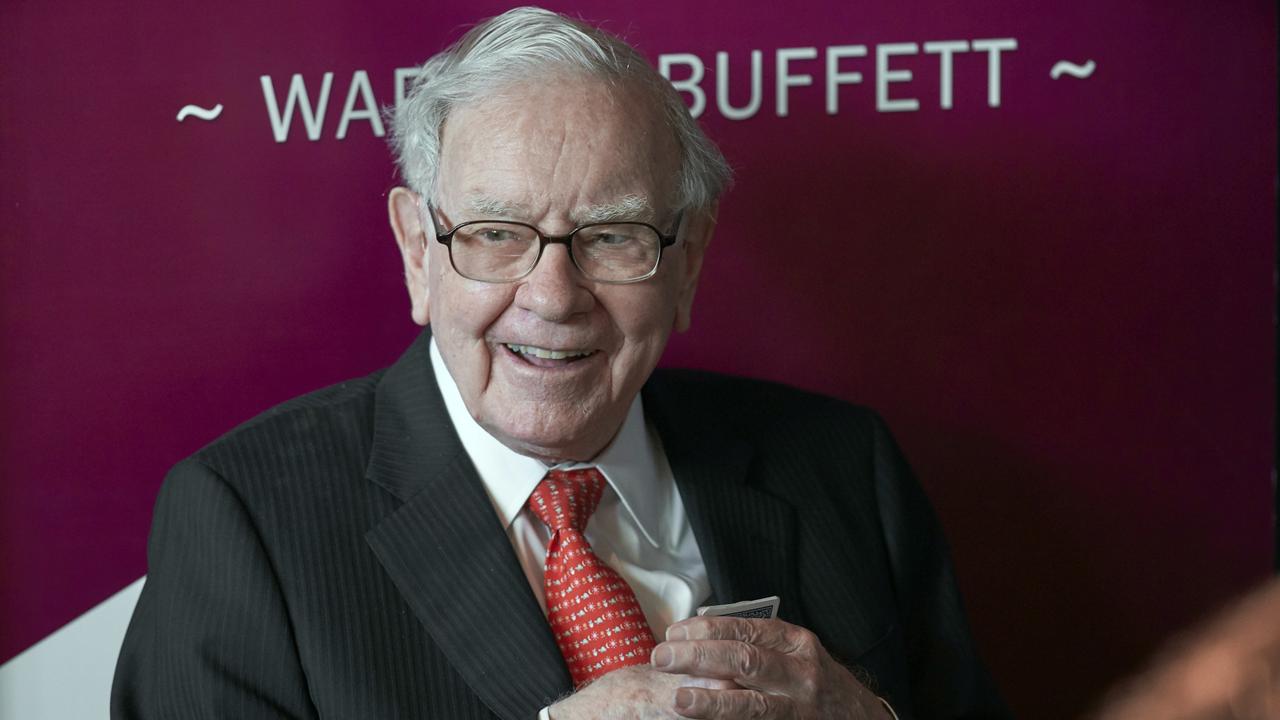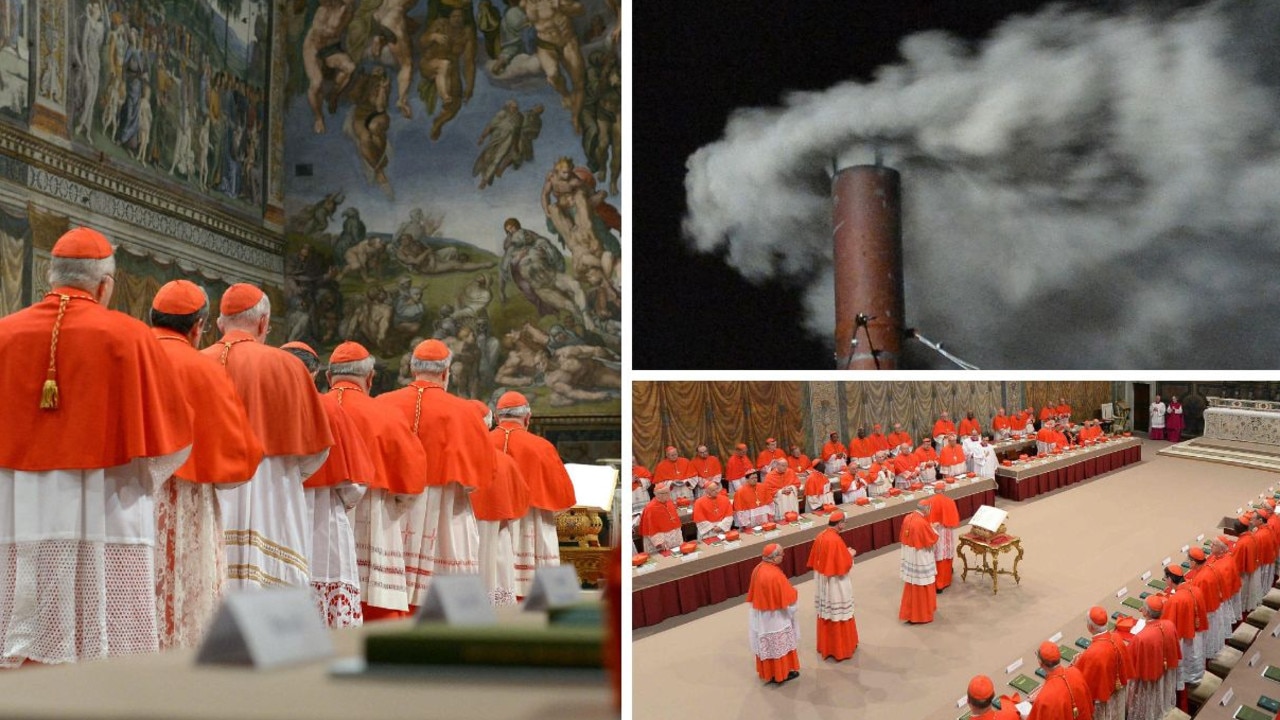Super Tuesday set to make Donald Trump’s Republican candidacy for the US Preisdent inevitable
DONALD Trump is just days away from being in a position to cement himself as the inevitable Republican candidate for the US Presidency.

World
Don't miss out on the headlines from World. Followed categories will be added to My News.
- Trump: a ‘global disaster’ awaits
- Chris Christie endorses Donald Trump
- Trump: I could have had sex with Diana
- Controversial statements: Trump’s secret agenda
DONALD Trump is just days away from being in a position to cement himself as the inevitable Republican candidate for the US Presidency.
His supporters — voters from all walks of life — are convinced they are on a road to revolution, while the godfathers of the Republican party are frantically looking for a way to stop the Trump train.
Can it be done? Can Trump be thwarted, or is the former reality TV star barrelling towards the White House at a unstoppable pace?
This week’s Super Tuesday contest — the biggest voting day in the primaries race and a critical turning point — will test exactly how far Trump can translate his support.
Trump’s support is deep and broad: in the four contests to date, Trump has shocked pundits not only by raking in three wins, but by the diverse cross-section of American society his backers cut across.
It’s this breadth of support that makes Trump so powerful: he’s winning with men, women, rich Americans, poor Americans, evangelicals, Mormons, Hispanics, blacks — the list goes on.
And Trump knows it, gloating about this very fact on the back of his Nevada win this week: “We won the evangelicals,” he said. “We won with young. With won with old. We won with highly educated. We won with poorly educated. I love the poorly educated.”
DONALD TRUMP’S MASSIVE BOMBSHELL
This broadbased backing puts Trump in prime position heading into Super Tuesday — D-Day in a slew of mostly southern states which are largely made up of demographics the real estate mogul has already proven he can command.
More than 25 per cent of the delegates which are crucial to gaining the nomination will be awarded on this day — Tuesday, US time — when 12 states and one territory vote.
Trump goes into the race having thumped his opponents in three back to back races, with his support peaking this week in Nevada where he commanded an astonishing 45.9 per cent of the vote.
But that’s not the figure that worries his opponents.
Trump’s real magic lies in his ability to get voters to show up to the polls — and that’s something that rightly panics the Democrats as well as the billionaire’s opponents in the GOP.
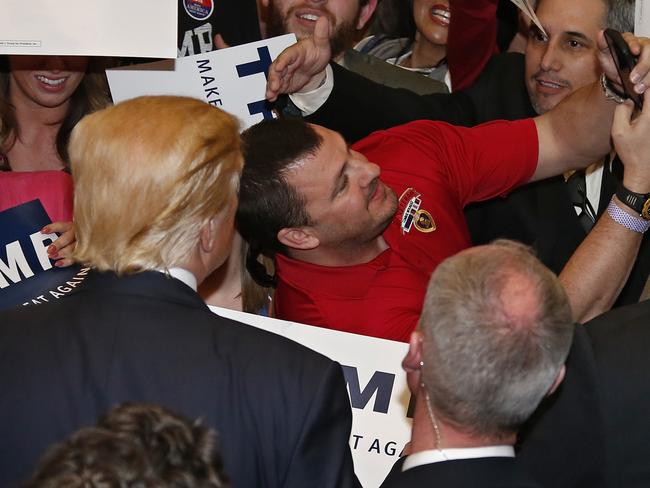
Republican primary contests in Iowa, New Hampshire and South Carolina drew out record voter numbers — 1.2 million people, up 24 per cent on 2012, according to the New York Post.
The Post also points out that it’s a pattern that hasn’t been replayed in the Democratic race.
High voter turnout can be interpreted as a protest vote — one imbued with anger and the result of everyday Americans angry enough about life that they show up to the polls and get involved in politics.
A similar pattern has played out with Bernie Sanders’s turnout figures on the democratic side, although nowhere near as dramatically as in the Trump story.
Trump’s third back to back win at the Nevada caucuses this week — although statistically a small state — gave a clear insight into what’s at play.
Entrance polls had 60 per cent of caucus goers saying they wanted someone outside of the political establishment.
Of those, 70 per cent picked Trump.
The same polls had 60 per cent of people saying they were “angry” about Washington.
Dartmouth University Professor of Government Dean Lacy said voters across the board felt forgotten by Washington, and so were compelled to vote for these anti-establishment alternatives.
“Voters in both parties feel like Washington is failing them,” Professor Lacy said.
“Part of the problem is gridlock — nothing seems to get done. Trump is picking up in particular voters who don’t have a college degree, but are white males in their 30s and 40s, voters who feel like they are being left behind economically. Those voters feel like government hasn’t been serving them.”
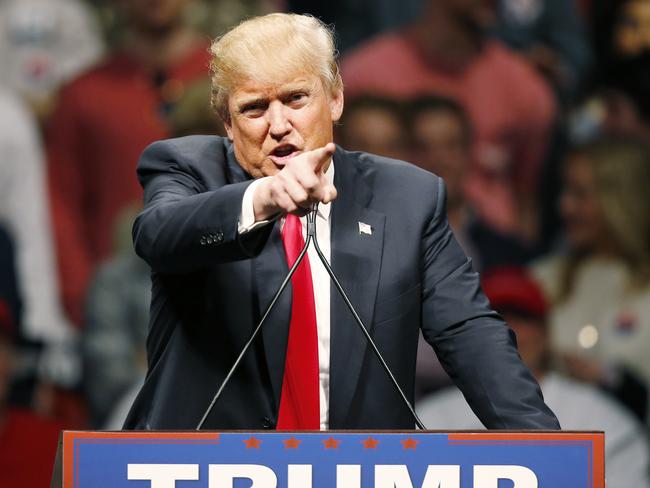
Professor Lacy said there has been an appetite brewing for a third-party candidate — someone not of the Republicans or the Democrats — dating back to the Ross Perot run in the 90s.
While Trump is technically running as a Republican, he is not seen as being of the party machine and certainly not seen as being of Washington.
To win the Republican nomination, one candidate needs to amass 1237 delegates.
These are assigned state-by-state. Some states award delegates proportionately based on the vote. Others apply a winner-takes-all model.
It is after Super Tuesday that the contest mostly shifts to a winner-takes-all model.
This means it that by that point, it doesn’t matter how close the second-place getter comes, because the winner counts all the delegates in their aim to reach a final tally big enough to claim the nomination.
Trump already has 82 delegates, well ahead of his rivals Ted Cruz on 17 and Marco Rubio on 16.
So, how could Trump be stopped?
The first roadblock would be by one of his opponents defeating him in the bid for the nomination.
The republican establishment figures are turning their hopes to moderate Florida senator Marco Rubio.
Rubio has the party on his side as well a wealth of financial support — but he’s yet to win a contest.
Furthermore, Super Tuesday doesn’t favour Rubio.
Trump is polling ahead in all of the states with the exception of Ted Cruz’s home turf Texas where the local senator is well ahead.
Rubio will instead hope to do well in the later March 15 winner takes all contests of his home state of Florida and Ohio. Although note, he also isn’t polling ahead there yet either.
And so, then, is Ted Cruz an option?
In South Carolina where his evangelical strengths were well suited, he only managed a third-place finish.
The fact is that if either of these candidates are to beat Trump, they will need to envelop the other’s vote — meaning one needs to quit the race.
Rubio articulated this fact on his jet this week, saying that as the field winnowed, “the alternatives to Trump will get stronger”.
“Donald has a base of support and if the majority of our party doesn’t want him as our nominee, we’ll continue to work toward consolidating that,” Rubio said.
But what are the odds of Cruz dropping out? Not likely at this point. And the same is true for Rubio.
Even if both fourth and fifth placers John Kasich and Ben Carson bail, their votes will need to universally go to a single non-Trump contender to really help beat him.
The tighter the contest between those vying for second place, the better for Trump.
And so, the second factor that could block Trump’s run must also be considered — the Democrats.
Even if Trump does get the nomination, he can still be stopped by a Democrat taking the White House.
At this point, Hillary Clinton is the favourite.
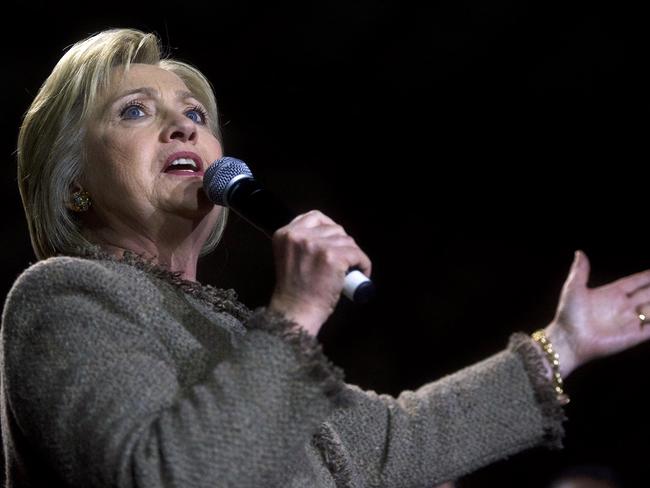
However it is this clear sentiment of the US public so strongly desiring an Other — someone not of the DC fraternity — that puts the possibility of Trump defeating Clinton very much on the table.
This, then, raises the spectre of a final possible roadblock for Trump — a third party tilt for the presidency by independent and former New York mayor Mike Bloomberg.
Conventional US political wisdom is that Bloomberg will throw his hat in the ring if Trump and Sanders win their respective party’s nominations.
However, if Clinton wins and the Trump star is still rising astronomically, it is possible Bloomberg will shift his goalposts.
It would mark the entry of another New York billionaire in the race, with Bloomberg looking to capitalise on the same kind of voter who is fed up with the establishment.
However, Bloomberg sees himself as offering a more moderate alternative to Trump and Sanders, and a more palatable option than Clinton who is cloaked in political baggage.
No independent has ever won the White House before — but no race has ever been quite like this one.
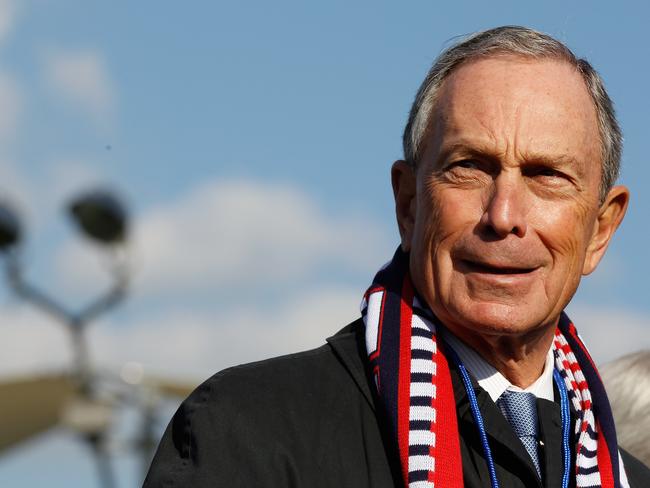
Nerves are so jittery about a Trump run to the White House that national US newspaper The Washington Post this week ran an editorial opinion piece comparing Donald Trump to Hitler.
“Like any of us raised in the late 20th century, I have spent my life perplexed about exactly how Hitler could have come to power in Germany,” the piece, by Harvard University theorist Danielle Allen read.
“Watching Donald Trump’s rise, I now understand.”
She wrote that her thoughts were not about whether their similarities were accurate.
“Leave aside whether a direct comparison of Trump and Hitler is accurate. That is not by point. My point rather is about how a demagogic opportunist can exploit a divided country.”
Results at the polls this week will offer the next big clue as to what lies ahead.
“It’s going to be an amazing two months,” Trump declared after claiming Nevada. “We might not even need the two months, to be honest.”
At this point, Trump looks poised to do what was this time last year simply unthinkable.
SUPER TUESDAY
•Biggest voting day in the primaries race
•Republicans need: 1237 delegates to claim the nomination
•So far: Trump has 82, Cruz 17 and Rubio 16
•R-Delegates available on Super Tuesday: 661
•Democrats need: 2383 to claim the nomination
•So far: Clinton 505, Sanders 71.
•D-Delegates available on Super Tuesday: 1034
•State to watch: Texas — Cruz’s home state and it has the biggest delegate count on both sides.
•Delegates mostly awarded on percentage of vote
•After Super Tuesday, contest shifts to states where winner-takes-all delegates.
Originally published as Super Tuesday set to make Donald Trump’s Republican candidacy for the US Preisdent inevitable

